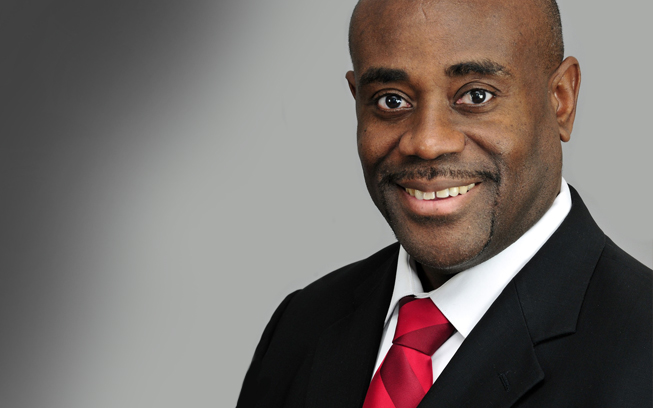By Tim Gruver
NORTHWEST ASIAN WEEKLY

Lance Lyttle
With over 25 years of experience in airport operation and management, Lance Lyttle is something of a world traveler himself.
A native of Jamaica, Lyttle spent years traveling abroad on business from Canada to Brazil, before working in the Hartsfield-Jackson International Airport as its assistant general manager and later the chief operating officer of Houston Airport System.
Despite growing up speaking his native country’s official language, English, communicating with his audience was not always perfect for Lyttle.
“One of the biggest transformations that I had to make was to focus a whole lot on speech, because I had to do a lot of presentations and a lot of public speaking,” Lyttle said. “One of the things was if I spoke too fast, some people would have difficulty understanding, especially with [my] strong accent. I had to learn to really slow how much I spoke, but also I had to focus on how I pronounced certain words.”
Today, Lyttle serves as the managing director of the Port of Seattle’s Aviation Division, which welcomes millions of immigrants like himself every year. While he considers himself lucky to have been a part of diverse workforces, Lyttle wants the Port of Seattle to be the kind of welcoming environment that recruited him.
“I highly value diversity and inclusion of opinions. I always take into consideration the opinions and thoughts of the team before making a decision. This leadership style is particularly useful to me at Sea-Tac, where I have an extremely talented team,” said Lyttle.
Lyttle believes that maintaining a diverse workforce should be the priority of any business to best represent and connect with the people they serve.
“The benefits of having a diverse workforce is a broad perspective rather from various different employees that may have a different experience, different background, a different way of viewing problems, a different way of viewing solutions,” Lyttle said. “Having a diverse team at an airport or any other organization is usually reflective of what the makeup or the diversity of the community is.”
The Port of Seattle plans to create 100,000 new jobs by 2025 and devoting 40 percent of its expenditures to local small businesses. Much of that work depends on the port’s communication with local minorities and immigrant communities, who make up the primary focus of the port’s hiring efforts.
Luis Navarro, director of the Office of Social Responsibility, said that maintaining relationships with communities around the Puget Sound are essential to the port’s goals of equity, inclusion, and equal access to job opportunities.
“Equity is measured in our attitudes,” Navarro said. “It is measured in the ways that we project ourselves to the community, and therefore showing communities and particularly communities of color and disadvantaged communities that the Port of Seattle is a friendly place where they want to apply for jobs.”
A 2013 study conducted by BBC Research found vast racial disparities in construction and construction consulting contracts awarded by the port.
According to the study, Native Americans were awarded 42 of every 200 contracts. Asian Pacific Americans were awarded 29. Latinos were awarded only 21. Subcontinental Asian Americans were awarded only eight.
While Lyttle’s former workplaces in Texas and Georgia allowed for businesses to set certain diversity goals in their hiring efforts, Washington state prohibits racial or gender preferences by state and local government under Initiative 200.
According to Lyttle, the port plans on funding its construction projects in the near future through federal grants that Initiative 200 could not place recruitment restrictions on.
In the meantime, Navarro said that outreach remains critical to ensuring that the people of the Puget Sound can call the Port of Seattle home.
“We want communities of color and women in particular to be encouraged to apply for those jobs, either directly with the port, or with our tenants, who will be creating sponsoring events, and meeting with minority business leaders can all be a part of those efforts.
“We knew that we had to do more outreach to ensure that more Black, Latino, Asian, and Native American-owned businesses had better access to opportunities,” Navarro said. “So we’ve focused our efforts at ensuring those communities knew of the opportunities. We’ve worked and continue to work with our prime contractors to ensure that all communities of color see the opportunities as opportunities and come in to the port either as direct contractors or subcontractors.”
Tim can be reached at info@nwasianweekly.com.



